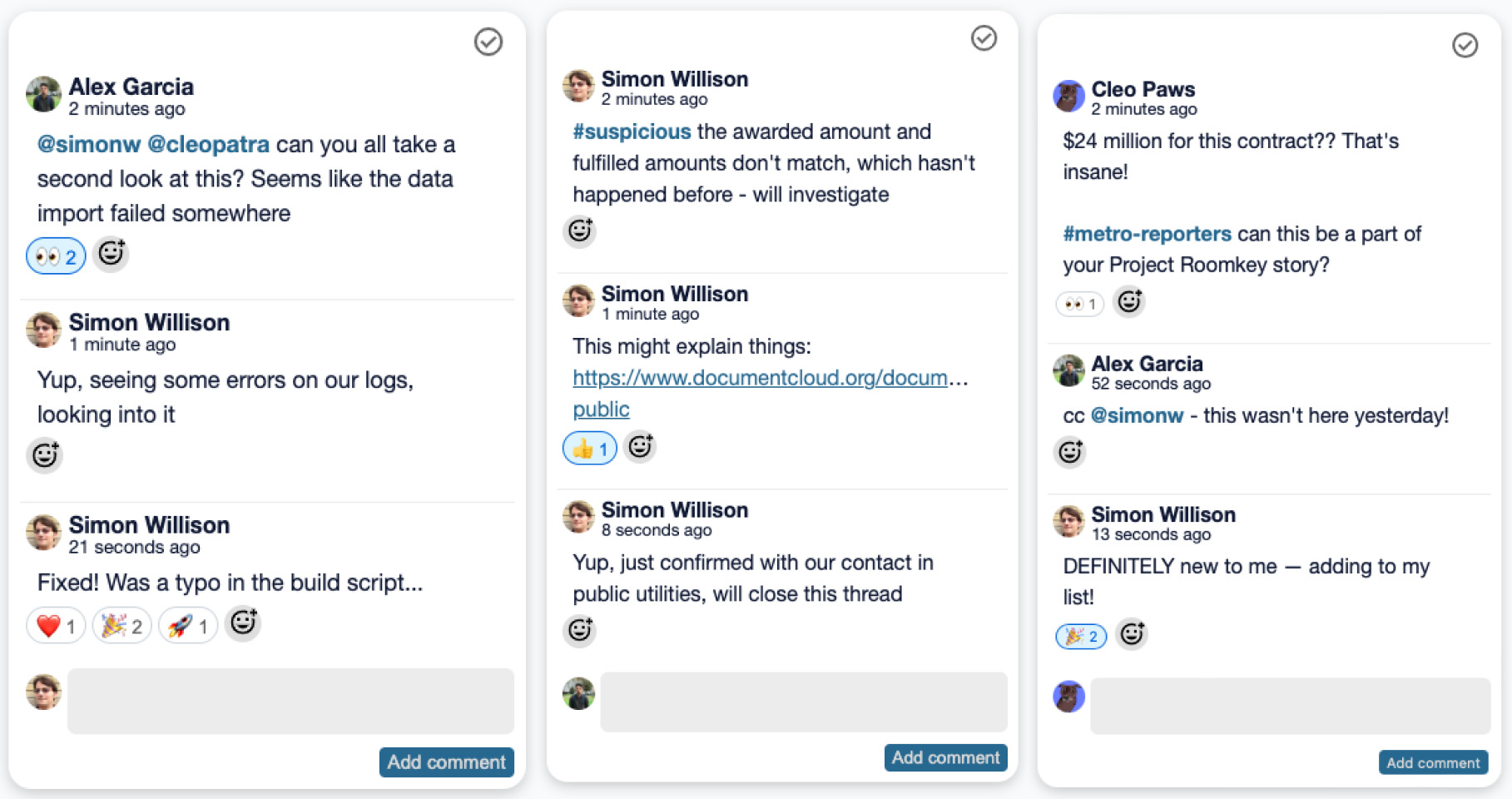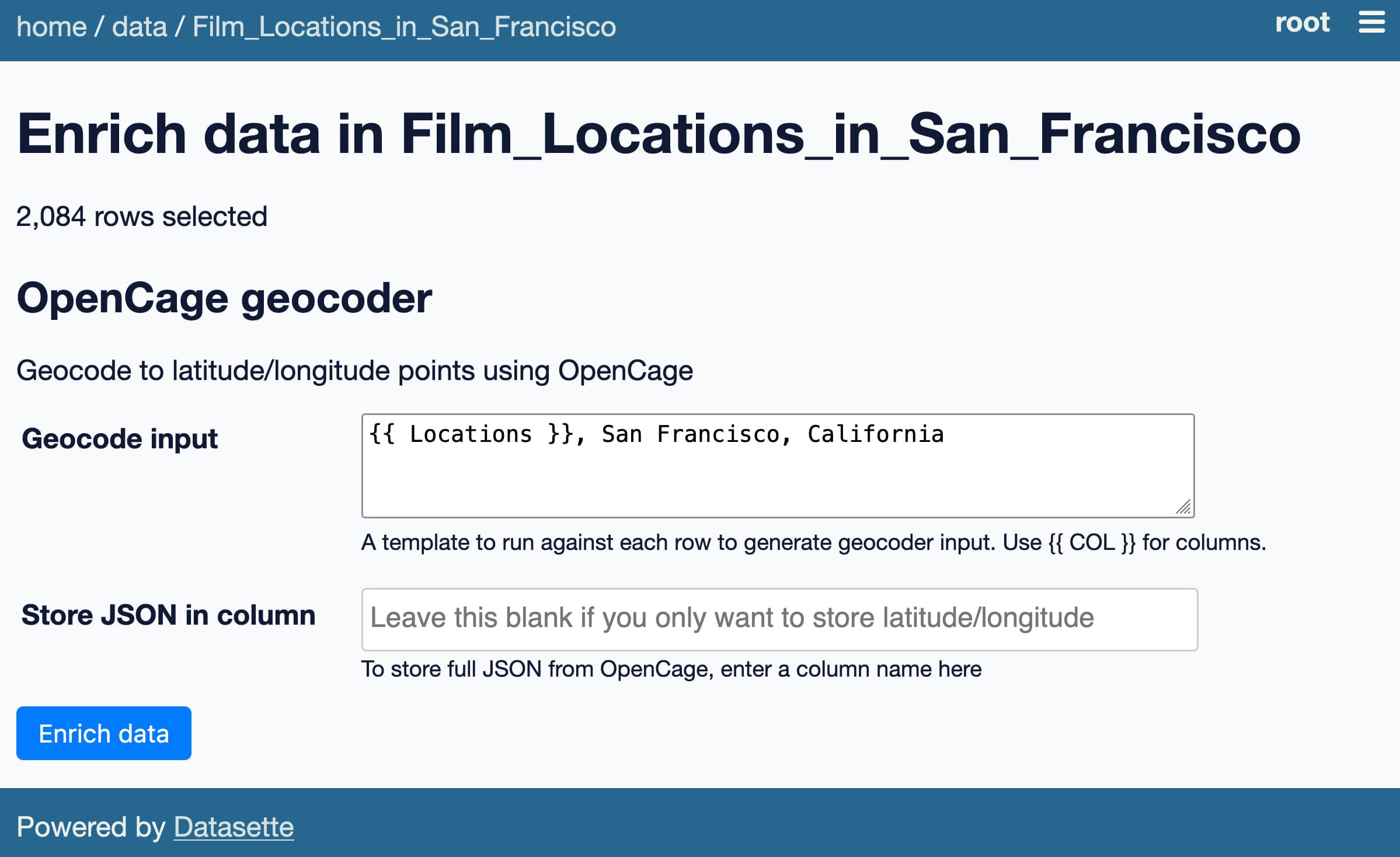1,455 posts tagged “datasette”
Datasette is an open source tool for exploring and publishing data.
2024
Weeknotes: Page caching and custom templates for Datasette Cloud
My main development focus this week has been adding public page caching to Datasette Cloud, and exploring what custom template support might look like for that service.
[... 924 words]2023
datasette-plot—a new Datasette Plugin for building data visualizations. I forgot to link to this here last week: Alex Garcia released the first version of datasette-plot, a brand new Datasette visualization plugin built on top of the Observable Plot charting library. We plan to use this as the new, updated alternative to my older datasette-vega plugin.
Weeknotes: datasette-enrichments, datasette-comments, sqlite-chronicle
I’ve mainly been working on Datasette Enrichments and continuing to explore the possibilities enabled by sqlite-chronicle.
[... 1,123 words]Simon Willison (Part Two): How Datasette Helps With Investigative Reporting. The second part of my Newsroom Robots podcast conversation with Nikita Roy. This episode includes my best audio answer yet to the “what is Datasette?” question, plus notes on how to use LLMs in journalism despite their propensity to make things up.
Datasette Enrichments: a new plugin framework for augmenting your data
Today I’m releasing datasette-enrichments, a new feature for Datasette which provides a framework for applying “enrichments” that can augment your data.
[... 1,202 words]Annotate and explore your data with datasette-comments. New plugin for Datasette and Datasette Cloud: datasette-comments, providing tools for collaborating on data exploration with a team through posting comments on individual rows of data.
Alex Garcia built this for Datasette Cloud but as with almost all of our work there it’s also available as an open source Python package.

